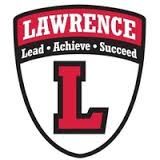By James McEvoy, Special Writer
LAWRENCE — The Board of Education briefly discussed a proposed a new policy on head lice in schools in advance of a formal introduction of the new measure scheduled for next month.
The policy, which arose amid parents’ concerns following a December outbreak in several township schools, would have to be formally adopted by the board following its introduction to become official, officials said Jan. 13.
At the Dec. 9 Board of Education meeting, Superintendent Crystal Edwards revealed lice was found in Ben Franklin Elementary, Eldridge Park Elementary and Slackwood Elementary that raised questions about district policy and procedures.
The new policy would aim to codify what Dr. Edwards said is the district’s current practice: if a student is discovered to have active lice, a parent or guardian will be contacted to take the child home and begin treatment.
Parents were critical of the district after learning that apparently in at least one Lawrence school there was a practice in place in which a student had returned to the classroom despite having active lice.
Head lice, according to kidshealth.org, is a tiny parasitic insect that can infect the scalp, especially in children. Highly contagious, they can be treated with a medicated shampoo, lotion or rinse, according to the website. The lice do not spread disease, according to the site.
Under current practice and in the proposed policy, students will be re-inspected to ensure there is no active lice present prior to returning to the classroom. If lice is again discovered, according to Dr. Edwards, the parent will be again contacted to re-treat.
Unlike some districts, Dr. Edwards has said students will be permitted to return even if lice eggs or “nits” are discovered and that the child would be “periodically” examined to ensure there isn’t a re-infestation.
“We are not excluding children from school if they do not have active lice,” Dr. Edwards said in December, citing an incubation period of the nits that could take several days, if not longer. “I’m not subjecting any student to missing that many days.”
Under the proposed policy, which will be available to the public prior to introduction and adoption, nurses would check students every three days for a 10-to-14-day period to ensure nits had not led to a re-infestation, according to district officials.
Dr. Edwards also told parents last week that an audit into other district health-related policies remains underway. She noted district officials found policies that referred to outdated codes and regulations, but that nothing alarming had yet been discovered.
She said the outdated code issue is a “common problem” given the number of policies the district has — including those due to state and federal mandates — as well as the fact policies are reviewed every three or five years.

